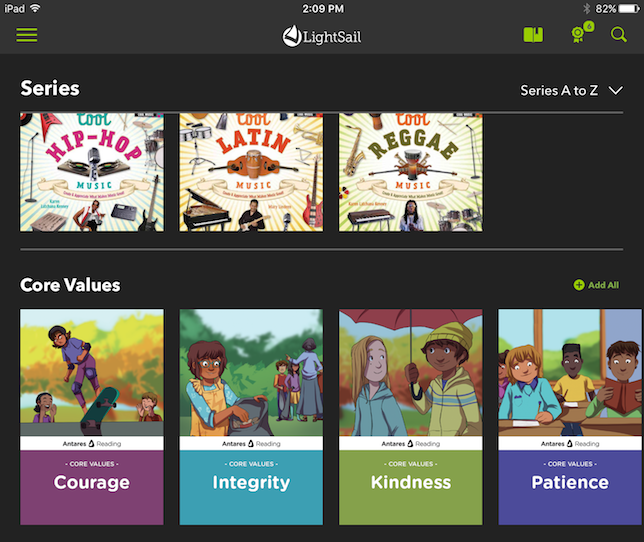LightSail Version 4.3 Boosts Personalization Features in Reading App
LightSail Education has launched version 4.3 of its K–12 adaptive reading app with new features that open up more personalization options to teachers and students.
The LightSail platform provides high-quality reading materials — offered across reading and grade levels — with in-text assessments and real-time access to student data available to teachers. Its library contains more than 6,000 texts embedded with assessments, including commonly assigned reading books like The Giver, The Great Gatsby and To Kill a Mockingbird. Titles are presented to students in a personalized way that takes into account the student’s Lexile measure and adapts titles as they progress.

With one tap, students can now save their favorite book series in the LightSail app. Image: LightSail.
Version 4.3 includes:
- A new item on the menu called “Series Shelf,” where users can now save their favorite book series with a single tap;
- Enhanced “Thoughts,” or comments on texts that teachers can now share with one class, several classes or keep private for themselves;
- Login downloads through the “Roster” section of the app, which teachers can take advantage of to store students’ login information in order to make the app to work faster;
- A more simplistic looking “Lexile Timeline,” now broken down into four-month segments, that displays student outcomes based on current rate of growth; and
- Improved search functionality across the app, allowing users to lookup titles by author, genre and topic.
LightSail version 4.3 is available in the Apple App Store.
About the Author
Sri Ravipati is Web producer for THE Journal and Campus Technology. She can be reached at [email protected].